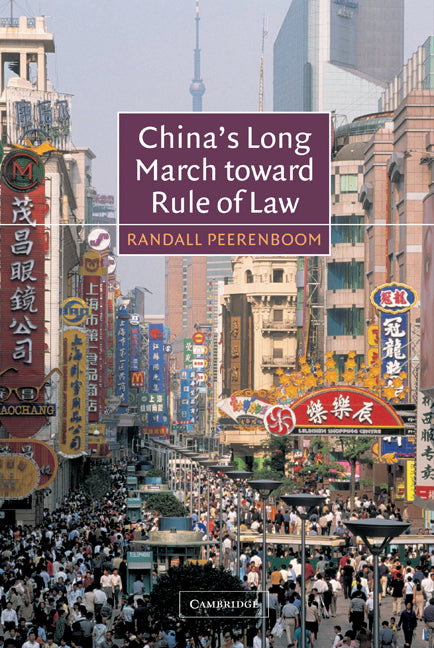Freshly Printed - allow 8 days lead
Couldn't load pickup availability
China's Long March toward Rule of Law
Argues that China is in transition from rule by law to a version of rule of law.
Randall Peerenboom (Author)
9780521816496, Cambridge University Press
Hardback, published 26 September 2002
692 pages
23.6 x 15.8 x 4.7 cm, 1.18 kg
'… a timely corrective to those who dismiss legal reform in China as meaningless without political liberalization … persuasive and well supported with primary material … Peerenboom provides the most comprehensive treatment of this important subject to date, and there is much of both empirical and theoretical value to be gleaned through judicious reading.' Political Studies Review
China has enjoyed considerable economic growth in recent years in spite of an immature, albeit rapidly developing, legal system, a system whose nature, evolution and path of development have been poorly understood by scholars. Drawing on his legal and business experience in China as well as his academic background in the field, Peerenboom provides a detailed analysis of China's legal reforms. He argues that China is in transition from rule by law to a version of rule of law, though most likely not a liberal democratic version as found in economically advanced countries in the West. Maintaining that law plays a key role in China's economic growth, Peerenboom assesses reform proposals and makes his own recommendations. In addition to students and scholars of Chinese law, political science, sociology and economics, this will interest business professionals, policy advisors, and governmental and non-governmental agencies as well as comparative legal scholars and philosophers.
Preface
List of abbreviations
1. Introduction
2. The evolution of rule of law in China: the role of law in historical context
3. Post-Mao reforms: competing conceptions of rule of law
4. Rule of law and its critics
5. Retreat of the Party and the state
6. The legislative system: battling chaos
7. The judiciary: in search of independence, authority and competence
8. The legal profession: the quest for independence and professionalism
9. The administrative law regime: reining in an unruly bureaucracy
10. Rule of law and economic development
11. Rule of law, democracy and human rights
12. Conclusion: the future of legal reform
References
Index.
Subject Areas: Laws of Specific jurisdictions [LN], International law [LB], Jurisprudence & general issues [LA]


